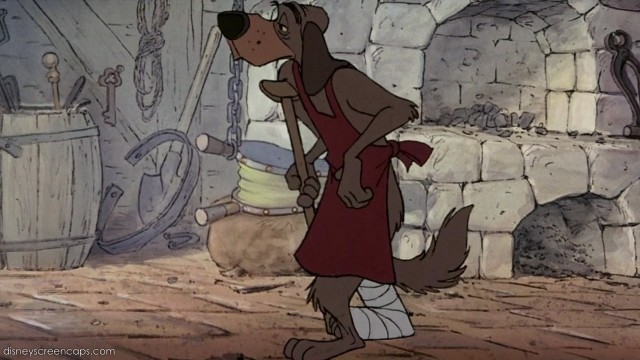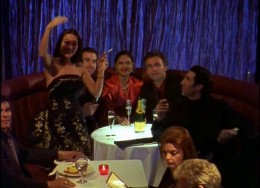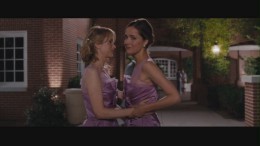Interview With Dina Gachman, Author Of ‘BROKENOMICS’

Ester: Hello Dina! Aside from being a friend of the site, you are also the author of the newly released book Brokenomics. Congratulations! Can you tell us a bit about how this book came to be?
Dina: Hi there! Back in 2010 I was laid off from my job as a development executive in film, and it was pretty terrifying waking up with nothing filling up my days and no paycheck, obviously. So I started writing about being laid off and unemployed in Los Angeles, and an editor I knew published the first post, thinking we would maybe do five installments. It started growing and I wrote the column for about a year and a half, writing about things like auditioning for a Jerry Springer game show because it paid $500 or contemplating moving back home to Texas because it’s so much cheaper, things like that.
It got some notice from Marketplace on NPR and Chelsea Handler’s Borderline Amazing Comedy site, and from there I got an agent and we brainstormed what the book version might look like.
Ester: You write a lot in the book about career trajectories and how often they diverge from what we anticipate and from what we might think we deserve. Did you imagine that this is what your first book would be about, or what it would be like? Or perhaps did you expect to publish a screenplay first / instead?
Dina: Writing was always the goal, from the age of about fourteen, but I used to write very serious, heavy stories because I read a lot of Toni Morrison and Henry Miller, so humor writing, and especially writing about money, was never something I imagined. I went to graduate school for film, so like a lot of people in my class I thought I would get out, my short film would be a gigantic hit, and I’d be on my way. But a career in the arts never really follows the path you expect it to.
Ester: It sure doesn’t. You and I have actually had similarly bumpy careers in Entertainment; after I graduated college with a degree in Film I worked in Development at one point and in a talent agency as a Floater and then as an Assistant. It was fun for me to read about someone else getting jerked around in that environment, though I never had to staple my pants at the office. Would you like to share one or two of your favorite anecdotes about that time?
Dina: I didn’t know that! So you know how that world can be … insane.
Ester: Oh yes. I too have known screaming bosses and 12-hour-days and unhinged celebrities and writing coverage and then, of course, layoffs. Always layoffs.
Dina: It’s so unpredictable and there’s so much insecurity in that world; everyone is terrified of losing their jobs. Well, besides stapling my pants when I was working at an agency and having my boss walk in, I have had bosses who’ve said things like, “No one cares about female-driven action movies,” or bosses who have basically humiliated me for not knowing what a macchiato was. I’d just moved to L.A. from Texas, and no one drank macchiatos where I was from! Getting yelled at is kind of par for the course in Hollywood.
Ester: New York City, too. I empathize. The best thing I overheard was a very powerful agent shouting over the phone, “I don’t care if you do have cancer!” Also one of the most senior agents in my department shouting, also over the phone, “No, Mom, fuck you!” I was 22.
But you seem to have learned a lot from your varied employment experiences. You also recount entertaining stories about babysitting and waitressing and saving up to travel long stretches of time. What advice do you have to offer early twenty-somethings about those first hard years out of college in terms of making and dealing with money?
Dina: I think for a lot of people it’s so hard to imagine saving at that time in life because you’re likely broke with student loans, but looking back I wish I had started saving even just a tiny bit of money each month right after college. Even $25 a month, which over time would add up. And I talk about this in the book but it’s important to not assume you’re above certain jobs. Work is work.
Ester: You also discuss how maintaining a sense of humor is critical and trying to learn from even debasing experiences. Like “babysitting is a great way to realize you don’t want to babysit,” which is valuable self-knowledge.
Dina: Yeah, I mean, being broke isn’t always hilarious, obviously, often it’s terrifying, but I do think you have to step back and try and gain some sort of perspective about the things you’re experiencing, and knowing when to laugh is crucial. As I was writing the book, all these jobs and experiences that in my twenties just seemed so humiliating started to make sense. I was like, “Oh, maybe that’s why I was babysitting after grad school — because here I am writing about it.”
That’s not to say every crappy period of life is A-OK because it can be a story one day, but you should at least try to take something from each job. Waiting tables can teach you a lot for your future position as a CEO, I bet.
Ester: There’s a quote I love that’s been attributed to Mark Twain: “Nothing bad can happen to a writer.” A person doesn’t have to be a writer to view his/her life as a story, but I think sometimes it helps. When you’re in the middle of a meltdown, and, despite your hard work and dedication, things have not gone the way they should, it can be helpful to realize that perhaps the real narrative of your life will only make sense with more time and distance — that there is an arc to your story, only you can’t see it while you’re in the midst of it. And even being laid off or broke or humiliated is part of your Hero’s Journey.
Dina: That’s all so true. It’s the “everything is copy” philosophy. My layoff definitely got me into that mode. If a random experience came up — an event I would never normally go to, a job writing for a lamp store — I would just go for it because I figure if it was horrible or ridiculous, I’ll write about it.
Ester: But I see that you drew the line at a morally questionable, all-expenses-paid-by-an-older-male-stranger trip to Italy? Which reminded me of the season 1 episode of “Sex and the City” where Carrie makes the same choice that you did.

Carrie, join us! Sun, sex, and syphilis for all!
Dina: She did! I thought I’d committed every episode to memory; I need to re-watch that. Yeah the sugar daddy path sounded tempting for a second, but I figured being stuck on a boat in the middle of the ocean with a strange dude was not an experience I wanted to have or write about. It could have turned into a horror movie.
Ester: Have you written many movies along the way?
Dina: I wrote and directed a short film in school, which was my thesis. It was a dark comedy about a Texas sorority. After school I wrote a really dark, noir-ish script based on the really strange book called I Love Lord Buddha by Hillary Raphael, about an American woman who becomes a hostess in Tokyo and starts a cult. I should pull that out again, it’s so bizarre. I’m working on the pilot version of Brokenomics too right now.
Ester: That sounds great! What’s your ultimate goal, career-wise? Do you want to get back into Development? Or be a show-runner? Or … ?
Dina: Definitely not development! I remember sitting at conference tables listening to execs just unravel these scripts and confuse the hell out of writers and just thinking, “This is painful.” There are some amazing, smart development execs, but I don’t have any desire to do that again. I’d love to keep writing, books, scripts, essays. Making a living writing in all those areas is the goal, and I would definitely love to get back into more film/TV writing.
Ester: Do you have another idea for a book already, or are you working on one? And can you tell us any details about this book deal, since those are so often cloaked in mystery?
Dina: Well, I’m getting married soon so as soon as wedding planning started I found myself taking notes. Talking about money with the person you love is so stressful and hard, and it can also lead to some funny situations, so that’s a topic I’m toying with. Relationships, money, communication.
As far as this deal, it was sold as a proposal by my agent, and the submission process probably aged me about four years. It’s so stressful and I thought I’d get an ulcer. But basically I wrote the proposal, she would give me notes, and we got notes from a few editors as well. It sold last March, and I had until August 1 to turn in the first draft. And not everyone gets a $3 million books deal, so you better really love writing and be ready to be persistent as hell.
Ester: True, O king. Best wishes on the engagement! That’s exciting. You do discuss relationships, love, and money a good deal in the book, so I assume you’re taking on your own advice and marrying someone with whom you can discuss finances?
Dina: Thanks. I learned from past mistakes for sure. Talking about money can be emotional, so we started talking about wedding expenses with an Excel spreadsheet between us on the table, so it’s about cold, hard facts and not someone’s feelings or what the flowers will look like. It helps.
Ester: You also talk a decent amount about planning for other people’s weddings and being a good sport (“never ever let the bride and groom see you stress about money,” for example). Are you having a hard time deciding things like whether you should invite everyone who has made you a bridesmaid in the past to be a bridesmaid? Do you hope to be a more benign dictator than most brides, or are you more of the opinion that you’ve paid your dues, now it’s your turn to get yours?

Get married: get yours.
Dina: That’s right — it is my time for revenge! Just kidding. My sisters are my bridesmaids so that’s easy, and we picked a dress that was really reasonable that they can wear again. I’ve done the $300 dress that goes straight to Goodwill so many times, I don’t want to stress them out. I am having a bachelorette party in Austin though, so I guess I am asking people to fly and get hotels — like a diva!
Ester: As long as you’re understanding about people who can’t make it because of money, I say, God bless. I traveled to a wedding in Austin once — it was totally worth it, and not just because we got to swim in that crazy outdoor swimming pool. As destination weddings go, it’s up there.
Dina: Definitely — if they can’t come that’s OK, and if they can they’re going to one of the coolest places in the country and I’m introducing them to Tex-Mex, so it might just change their lives.
Ester: Excellent. Well, lots of luck with the wedding planning, and with this book, which I enjoyed! Any last thoughts, pieces of advice you want to share?
Dina: Thanks, this was a lot of fun. I think really just try to keep things in perspective and don’t beat yourself up if you haven’t reached your goals by the “perfect” time. And if you are going to take loans out for school, please, whatever you do, watch out for private loans. They’re evil.
Buy Brokenomics here! Or from your local indie bookseller who we’re sure is great.
Support The Billfold
The Billfold continues to exist thanks to support from our readers. Help us continue to do our work by making a monthly pledge on Patreon or a one-time-only contribution through PayPal.
Comments